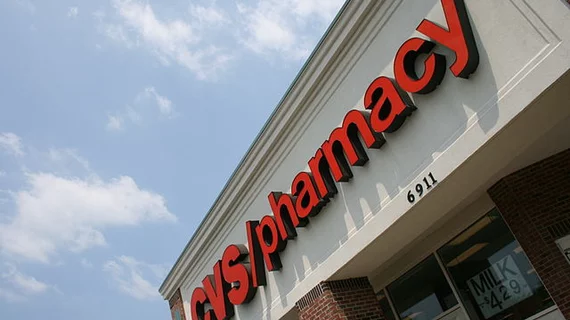Speaking at the Morgan Stanley Global Healthcare Conference in New York last week, CVS Health executives answered questions on the company’s $69 billion acquisition of Aetna and its role in the ongoing debate around drug pricing.
The merger brings together one of the nation’s largest pharmacy retailers and a health insurance provider and is expected to close in the second half of 2018 after clearing regulatory hurdles.
CVS-Aetna merger
The deal, one of the largest in the healthcare space, could be “transformative” for consumers, according to CVS executives.
“We envision the combination of CVS and Aetna to be a leader of that change and we intend to transform the consumer health experience through a model that is easier to use, a model that's less expensive, and a model that puts consumers at the center of their care,” CVS CEO Larry Merlo said during a Q&A session at the conference.
The regulatory process with the Department of Justice and the parallel process at the Department of Insurance is “going well,” according to Merlo.
CVS expects synergies of $750 million across “a few buckets” by the second full year of operation with the businesses together, including corporate overhead and operations, Executive Vice President and Chief Financial Officer Dave Denton said.
The integration of the two companies may be shorter compared to CVS’s acquisition of Caremark due to the underlying relationship between Aetna, CVS and Caremark, according to Denton.
“We've already built the infrastructure, or I'll call it the plumbing, if you will, here,” Merlo said.
The deal is still expected to close in the second half of 2018.
Drug price debate
CVS, which is one of the nation’s largest pharmacy benefit managers, has previously defended its role in the drug industry, as PBMs have come under fire as the middlemen. Executives stated support for efforts to reduce drug costs from the Trump administration.
“We absolutely agree with the objective of lowering drug costs and importantly lowering out-of-pocket costs for consumers,” Merlo said.
Executives support several elements of the Trump administration’s blueprint, including speeding up the entry of generics and biosimilars and increasing flexibility for Medicare Part D for formulary management.
HHS Secretary Alex Azar has commented about the current PBM rebate system, but the agency has not put forth a specific proposal to reform the model, according to Merlo.
CVS returns 98 percent of rebate savings directly to clients, about $300 million in 2018, Merlo said. The figures were disclosed in the company’s second quarter earnings report.
“At the end of the day, we’re confident that whatever transpires here, there's going to be some form of discounting,” Merlo said. “And the value that PBMs bring to the marketplace in terms of managing formularies are not going to go away. And we can pivot to whatever those dynamics are in the interest of lowering drug costs.”

